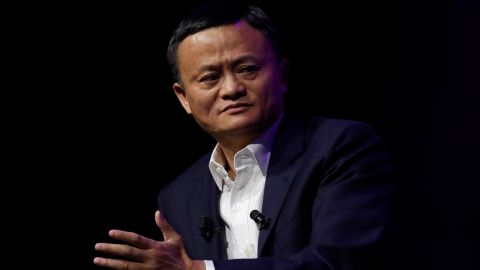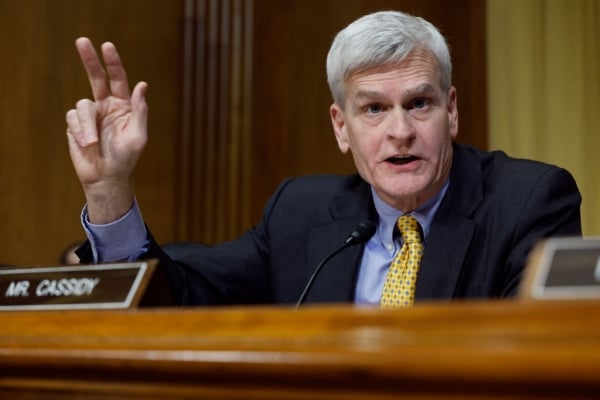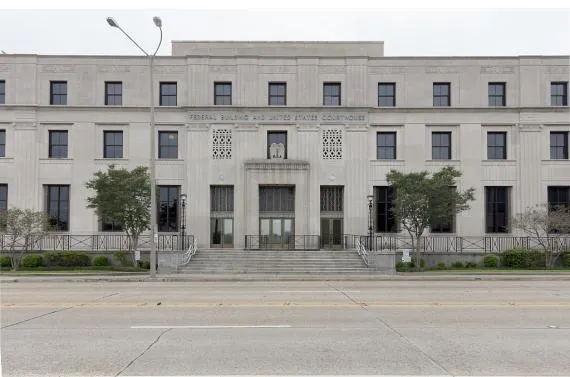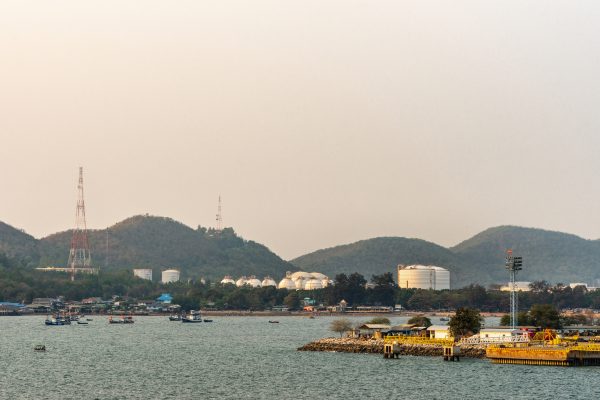Editor’s Note: A version of this story appeared in CNN’s Meanwhile in China newsletter, a three-times-a-week update exploring what you need to know about the country’s rise and how it impacts the world. Sign up here.
Hong Kong
CNN
—
For Chinese tech tycoon Jack Ma, there’s a price to freedom: $26 billion.
Alibaba, the Chinese e-commerce giant Ma co-founded, saw its Hong Kong-listed shares plunge as much as 9.4% Tuesday after Chinese state media reported that an individual surnamed “Ma” in the city of Hangzhou — where Alibaba is based — had been detained on national security grounds.
According to China’s state broadcaster CCTV, the suspect was placed under “compulsory measures” on April 25 on suspicion of “colluding with overseas anti-China hostile forces” to “incite secession” and “incite subversion of state power.”
The one-sentence report, which was swiftly picked up by other state media outlets and alerted across Chinese news platforms, triggered panic selling in Hong Kong, erasing an estimated $26 billion from Alibaba’s market value within minutes.
Amid the frenzy, Hu Xijin, the former editor-in-chief of the state-owned nationalist tabloid the Global Times, rushed to clarify on China’s Twitter-like Weibo that the report was misleading because the name of the suspect in question has three characters. Jack Ma’s Chinese name, Ma Yun, has only two characters. (CCTV later quietly updated its original report to match Hu’s assessment).
To further dispel concerns, the Global Times reported the accused man was born in 1985 in Wenzhou (while Jack Ma was born in 1964 in Hangzhou) and worked as the director of hardware research and development at an IT company.
The clarifications led to a rebound, with Alibaba recovering the majority of its losses by the day’s end.
The market’s roller coaster reaction is the latest sign of just how skittish investors are getting over China’s embattled tech sector, which has been a target of the Chinese government’s heavy-handed regulatory crackdown since late 2020.
Despite recent signals from the Chinese government it is preparing to rollback the campaign due to the economic impact, as first reported by the Wall Street Journal, the market frenzy on Tuesday indicates investor confidence remains shaky.
“I thought this was kind of an odd episode,” said Victor Shih, a political science professor at the University of California San Diego. “Whether that was a warning of sorts to the technology sector as a whole, or perhaps Jack Ma personally. Who knows? But it’s certainly demonstrated the government does not even have to arrest a senior technology executive to erase tens of billions of dollars from a company’s market valuation. It just needs to release some kind of information,” Shih added.
“That’s quite powerful. And certainly what happened yesterday was a clear illustration of that power, whether it was delivered or not.”

But the fact investors were so quick to believe Jack Ma, once China’s most high-profile billionaire, would fall afoul of state security authorities reveals something of the political reality many Chinese tycoons now live in.
“It doesn’t really matter anymore if it’s really him. The important thing is: a lot of people think it’s him, a lot of people expect it to be him, now that is interesting,” said a popular comment on Weibo, which drew 57,000 likes.
The turn in public sentiment against Ma is almost as spectacular as his rags to riches story. Until about three years ago, the English teacher-turned billionaire was widely worshiped for his charisma, outspokenness and self-made success. (He was even nicknamed “Daddy Ma” by some fans).
But as tech companies like Alibaba expanded their businesses empires, they’ve become the target of growing frustration and resentment among young Chinese workers who are fed up with gruelingly long work hours, high pressure and stagnant pay. (Jack Ma’s endorsement of China’s so-called “996” work culture, meaning working from 9 a.m. to 9 p.m. six days a week, drew intense criticism in 2019.)
As tech giants fell under the crosshairs of the Chinese government, “evil capitalists” have been increasingly blamed for various social ills, from relentless competition, skyrocketing property prices to lack of social mobility.
“Within just a few years, ‘Daddy Ma’ has been labeled as a ‘rotten capitalist’ in public opinion, and many people are looking forward to Ma’s downfall,” Xiang Dongliang, a blogger, wrote on WeChat.
“But the question is, will bringing down capitalists and driving out (so-called) foreign forces really make everyone’s life better?”
Jack Ma has mostly faded from public life and kept a low profile since Ant Group’s IPO in the US was halted by regulators in late 2020. Once among the most outspoken figures in China, he hasn’t posted anything on Weibo, where he has nearly 25 million followers, since October 2020.
His last Weibo post, about a meeting with some 100 school principals to discuss the future of China’s education, was flooded with critical comments.
“I won’t be surprised if old Ma is jailed one day,” the top comment said. “You’re just a capitalist! Don’t pretend to be a good person!” another comment screamed.
Jack Ma remained silent throughout Tuesday, as rumors against him swirled on the Chinese internet. Hashtags about the detention of the suspect surnamed Ma were among the top trending topics on Weibo, drawing hundreds of millions of views.
“He has only silence, which is a ‘special way of existing’,” Zhang Feng, a columnist, wrote in a widely shared WeChat article following the incident.
“This kind of silence is of profound significance. For a public figure, his speech itself is an ‘extension’ of his existence. When a person no longer speaks up, although he is still alive, still doing things, at least part of him has ‘vanished’.”




















Discussion about this post